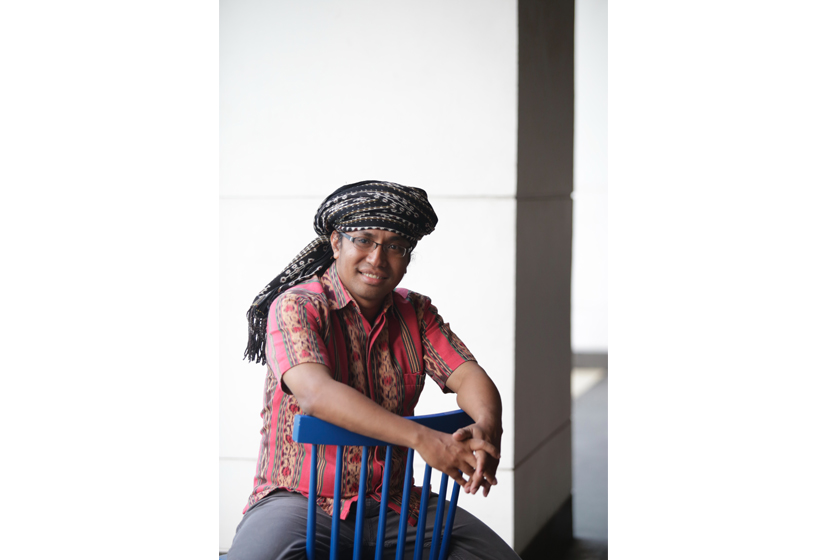
18 November 2024
From Physiotherapy to Advocacy: Wisnu Saputra’s Mission for Equal Opportunities
When Wisnu Saputra began his career as a physiotherapist in Bali, he envisioned a future focused on... Read More
The Australia Awards are prestigious, transformational scholarships and short courses offered to emerging leaders for study, research and professional development in Australia

04 Dec 2019
 Be Sweet to Your Feet
Be Sweet to Your Feet
Project leader: Mr. Chandra Apriadi Panduwal
Level of education and university: Master, Queensland University of Technology
Collaborating Organisations: -
Project Location: Kupang, Nusa Tenggara Timur
Activity Type: Training, workshop or seminar
Sector: Health services, human resources development
Project Rationale:
Diabetes mellitus is a chronic disorder characterised by elevated levels of blood sugar due to a lack of the production of insulin or a decrease of insulin receptors. Diabetes mellitus is a common chronic diseases and has become one of the most pivotal health-care problems in Indonesia (Ministry of Health Indonesia, 2009, 2014) and throughout the world (World Head Organization, 2016). I work at Prof. Dr. W. Z. Johannes General Hospital in Kupang Indonesia and since 2007, I have been working in the acute department. In this hospital the number of diabetes patients shows an increasing trend and many of the patients develop diabetic foot (Medical Record RSUD Prof. Dr. W. Z. Johannes Kupang, 2017). As a part of chronic diseases diabetes mellitus and diabetic foot are associated with non economical cost such as lost of independence, discrimination, stigma and potential disability. These problems could have lasting impact through reduction in the quality of life and lost opportunities that extend the dependency of the patients to their families, offsprings and carers.
The prevalence of diabetes is rising in tandem with the increase in the population growth rate and urbanization all over the world. Learning how to deal with the disease and keeping the blood glucose within suitable levels and prevent diabetic foot have become the greatest challenge for diabetics, pointing out the importance of patient education and and skills as a self-empowerment treatment modality necessary for improving the quality of life in these patients. The vast majority of diabetics believe their physicians are exclusively responsible for educating them in this regard; the role of non-physician health-care providers, however, has gained increasing acceptance in different parts of the world during the past 25 years. Many believe nurses should fulfil a leading role in diabetes treatment and care education as existing clinical and observational clinical trials have shown nurses to be capable of providing an effective quality care at lower costs. Drawing upon the expertise of nurses in providing care for diseases such as diabetes in different clinical, social and educational units, benefiting from nurses in the education programs can reduce not only the number of unnecessary referrals to specialists but also the heavy burden of such visits impose to the society.
Project Beneficiaries:
Fifty nurses from five hospitals in city of Kupang will have increased knowledge and and skill about diabetic foot management
Priority Development Area:
Human development for a productive and healthy society
Link with Australian organisation:
Flinders Overseas Health Group (FOGH)
Share this article on:
 Related Article
Related ArticleThis website uses cookies to improve your website experience. We may also use cookies to analyse website data so that we can improve our online services. To find out more visit our privacy policy.

